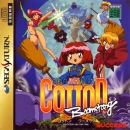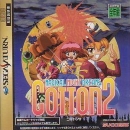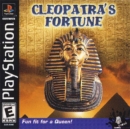| Teeqoz said:
1. Mario is probably the biggest gaming franchise in the world, in terms of recognizability and brand identity. I don't see any good reason as to why Niintendo would lose much, if any, of their brand power by going third party. Why would the quality of Nintendo's games decrease by releasing on other platforms? Sure, the quantity might take a hit in the transitioning phase when they're getting used to it, but once they've gotten used to multiplat developping it should be back to normal.
2. This would only be an issue if Nintendo made it into one. Nintendo could keep one making games with decent graphics and a 60 fps stable framerate, just add Anti-Aliasing and a higher res. Most people wouldn't care, because let's be honest, the art style Nintendo uses the most (call it cartoonish or pixarish or Nintditic, whatever) doesn't require that much graphical oopmh to look good.
3. Heh, I've played a fair bit on my friedns Wii U, and there are very few games there that are tailored to specifically designed hardware (I assume you mean special features, like in this case, the gamepad). Most of the games Nintendo make aren't tailored specifically around those hardare features, more often then not, the hardware features come in as after thoughts in already fully working good games. Nintendo already fit in the standards of the other platform manufacturers.
|
1. Why did the quality of Sega's game take a hit when they went third party? Because they no longer need to sell consoles with their IP. They only need to sell games. Nintendo could make a number of poor Mario game and they will still sell decently (until the franchise is known for mediocrity.) Did the Sega brand not change drastically? Even if Nintendo could maintain the quality and quantity of releases, there are issues. How exactly do you think games like Animal Crossing would sell on the PS4/XBO? Probably horribly. Why? The audiences on said platforms are just different and have a different conception of the Sony and Microsoft brands.
2. This is true for some Nintendo games, but not all. Games like Starfox, Metroid, Fatal Frame, Pikmin, Xenoblade, Fire Emblem, The Legend of Zelda, and other more niche titles will need to compete on a graphical level. A cartonish art-direction would make not hitting 1080p 60fps even more unsatisfactory to the PS4/XBO userbases, as such games are not suppose to have demanding assets (in their eyes) but should have desirable image quality.
3. No I don't mean special features. The NES, SNES, N64, and Gamecube had controllers which Nintendo tailored their games to, and said controller weren't especially special. However, there is more to a platform than controls. Nintendo would be less familiar with the hardware, making it more costly to develop games at the same quality for. Nintendo would not be able interface some special features like handheld/console connectivity (which they have taken advantage of in the past) at anywhere near the same costs. Certain things like amiibos would be more costly, as they need to get the platform manufacturer's okay, which might be an issue if say somebody like Activision asked the manufacturers for special priveleges so that they can remove the Amiibo competition (this happens often enough with third parties.) Pay-gates to online games could affect the sales of games like Mario Kart and SSB, which target audiences who are not willing to go through such paygates. So on and so on.


























































